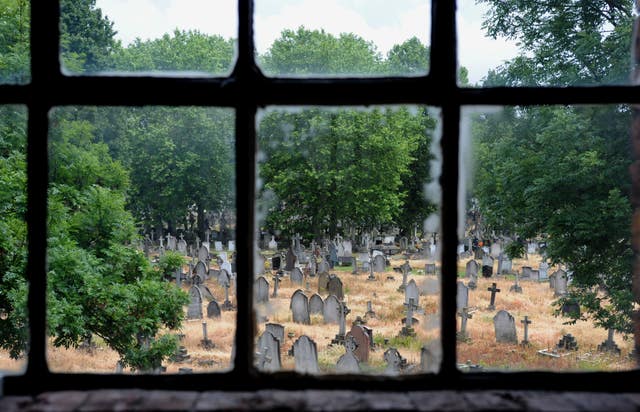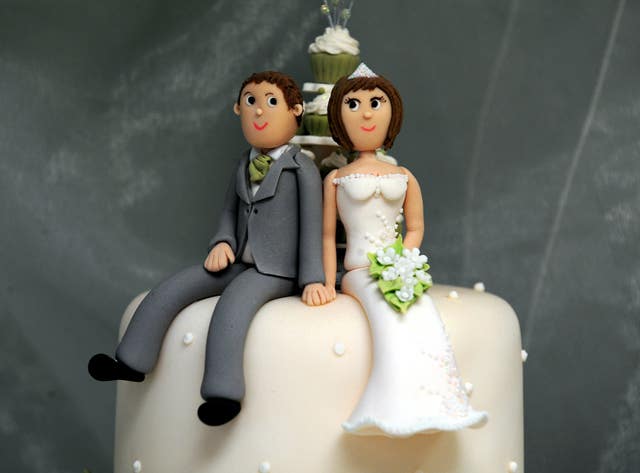Weddings capped at 15 people, Boris Johnson announces
Celebrations held this weekend will narrowly avoid the new restrictions, which come into effect in England on Monday.

Wedding ceremonies and receptions in England are to be capped at 15 people, as part of new coronavirus restrictions to curb a surge in cases.
Prime Minister Boris Johnson said that the number of people permitted at wedding celebrations is to be halved, in a bid to “tighten up” the current rule of six.
But he added that funeral services would be exempt from the restrictions announced on Tuesday, with the maximum number of mourners remaining at 30.
Celebrations held this weekend will narrowly avoid the new restrictions, which come into effect in England on Monday.
Setting out the measures in the House of Commons, Mr Johnson said: “Fifth, now is the time to tighten up the rule of six.

Current guidance states that up to 30 attendees are permitted in Wales, while in Scotland, ceremonies and receptions are limited to 20 people, and numbers are dependent on the venue in Northern Ireland.
One bride, due to get married on December 12 after being engaged for five years, who had originally planned a wedding with 100 people in Norfolk, said she felt “gutted” following the announcement.
“We are then seeing people say online that it doesn’t matter, it’s not important and at least we don’t have Covid and then we feel like our feelings are not valid,” 40-year-old Laura Brown told the PA news agency.
“It’s a day but it’s so much more than a day, because of all the emotions that go into it.”
Meanwhile, self-employed wedding celebrant Chris Gray, from Glasgow, called the some of restrictions around services “nonsensical”, specifically that couples are allowed to kiss but must wear face coverings for the rest of the ceremony.

Weddings and civil partnership ceremonies and receptions were included in a list of exemptions to the ban on social gatherings of more than six in England, with up to 30 people, including the couple, allowed to attend.
Funeral services remain exempt from the rule of six, unless specified in areas with local lockdown restrictions.
The National Association of Funeral Directors (NAFD) welcomed the decision not to further reduce the number of mourners, allowing families to be “supported through their grief by a small number of close friends and family”.
“Funeral directors are working closely with crematoria, places of worship and other funeral venues to ensure that these small funeral services take place in a Covid-secure way,” a spokeswoman said.
“We are seeking clarification on the implications for funeral receptions/wakes – but our priority for families will always be to make sure that they are able to be present for the burial or cremation – and any faith-led rituals that form part of the funeral service – as you only ever have one chance to say goodbye.”
Sam Tyrer, managing director of Co-op Funeralcare, warned against further restrictions on funerals after witnessing the “devastating impact” lockdown restrictions had on grieving families.
“The size of venues, such as crematoriums and places of worship, should be taken into account when deciding how many mourners can attend a funeral whilst still maintaining social distance,” she said.
“Choice is imperative when experiencing a bereavement and where this is taken away from families it can lead to a prolonged and profound impact on how they grieve.”
A maximum of 30 people are allowed to attend a funeral in England and Wales, while no more than 20 are permitted in Scotland, and it is dependent on the venue size in Northern Ireland.
The ban on gatherings of more than six applies to wakes or receptions held in private homes or gardens in England, unless those attending are all from the same household or support bubble.





